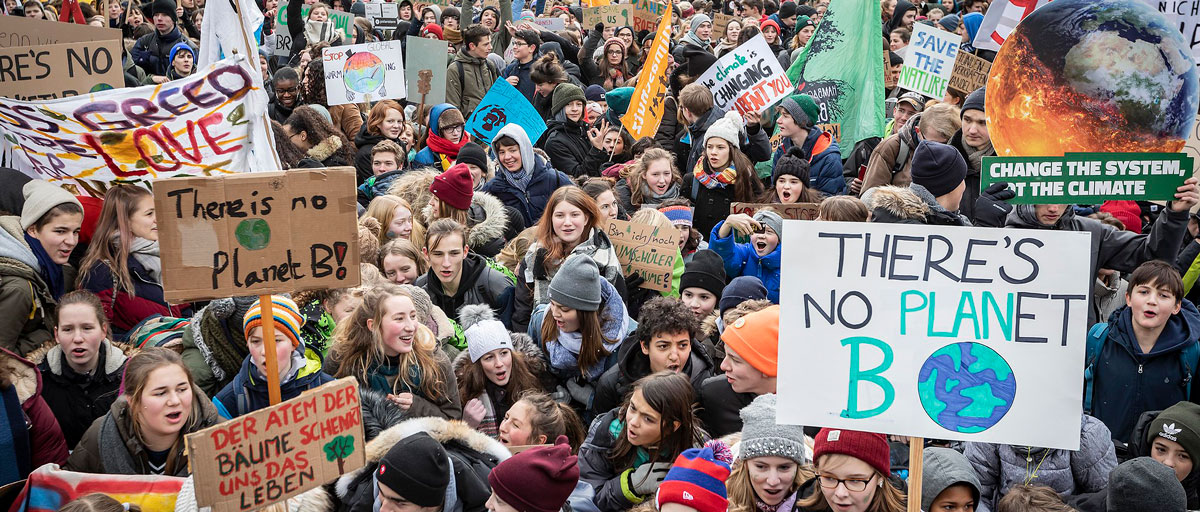Bildtext får vara max två rader text. Hela texten ska högerjusteras om den bara ska innehålla fotobyline! Photo: B. Christensen/Azote
PERCEPTION OF TIME AND RISK
Collaboration in uncertain times can turn tragedy into comedy
- Researchers use game theory to investigate how individual time preferences influence long-term collective action under the risk of collapse
- Several preconditions are needed to spur successful long-term collective action
- Caring for the future is essential for collaboration to arise
Caring for the future can spur long-term collective action but the severity of a perceived threat is what will eventually determine whether action will be taken
THE URGENCY OF NOW: The illusion of time may be one of the biggest obstacles in trying to solve global environmental change. For many, climate change is still not real, it remains a looming threat destined for the future, rather than an urgent action needed to be solved today. The result is a reluctance to join forces and collaborate towards sustainable, transformative solutions.
In a study published in PNAS, centre author Jonathan F. Donges along with colleagues from German, US and Russian universities use game theory to investigate how individual time preferences influence long-term collective action under the risk of collapse.
Under certain conditions, caring for the future alone can transform this collective action challenge from a tragedy to a comedy of the commons, where collaboration dominates.
Jonathan Donges, co-author
Severity of threat most important
The authors extend the well-studied setting of a social dilemma to that of a social-ecological dilemma. They do so by incorporating an environmental tipping element, termed the Ecological Public Good, into the “public goods game” based on concepts from game theory.
The actors in the model are geopolitical units such as cities, states, or unions of state.
Collaborative actions represent stewardship policies such as reducing greenhouse gas emissions or enhancing global carbon sinks.
The authors show that several preconditions are needed to spur successful long-term collective action:
Time preference, the impact of collapse and the number of actors involved are three elements which determine the emergence of collaboration to avoid negative outcomes.
Caring for the future is also essential for collaboration to arise, but the severity of the perceived threat is what will eventually determine whether action will be taken.
Polarization affects global collaboration
Moreover, the greater the number of actors involved, the greater the severity of the collapse impact needs to be in order to spur actors to collaborate. The dilemma is clear: individual inaction is beneficial on the short-run even though collective action would be beneficial on the long-run.
"Our model offers a possible explanation for how the increased polarization with respect to the beliefs about human-made climate change poses a threat to the stability of global collaboration agreements, such as the Sustainable Development Goals and the Paris Accord," the authors conclude.
Methodology
The authors introduce a stochastic game to study the pre-conditions for successful intertemporal collective action under risk of collapse. The stochastic game incorporates multiple environmental states, which can affect the actors’ available actions, observations, and current rewards. The transition between the states depends on chosen actions which occur probabilistically. To complement this analysis, the authors further use a multiagent actor-critic reinforcement learning dynamic, similar to the replicator dynamics used in evolutionary game theory, whereby agents are capable of learning in stochastic games. The different equilibria are studied to determine the conditions necessary for cooperation to emerge.
Barfuss, W., Donges, J., Vasconcelos, V.V., Kurths, J., Levin. S. 2020. Caring for the future can turn tragedy into comedy for long-term collective action under risk of collapse. vol. 117 no. 23 12915-12922, https://doi.org/10.1073/pnas.1916545117


PhotoLe%C3%B3nFelipeMendoza.jpg)






